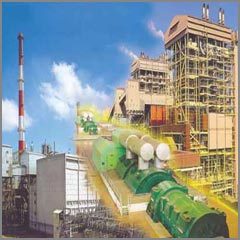 Finance ministry has also failed to establish a panel meant to review tax incentives to SEZ units and revenue losses incurred.
Finance ministry has also failed to establish a panel meant to review tax incentives to SEZ units and revenue losses incurred.Even as the government wrangles with when to bring in the direct taxes code and a goods & services tax to rationalise the country's tax regime, the much-hyped special economic zone policy is seeing fewer investors as a result of uncertainty over the future tax regime.
The ministry of commerce & industry is learnt to have asked the finance ministry to leave policy for SEZs untouched in order to allow exports from them grow.
The finance ministry has also failed to establish a committee that was supposed to review the tax incentives given to SEZ units and revenue losses incurred.
The ministry was asked to form the panel by the parliamentary standing committee on finance, headed by BJP leader and former finance minister Yashwant Sinha.
"We have not received any communication from the finance ministry to set up such a committee. They (the finance ministry) were asked to form a group to assess revenue losses, which has not yet seen the light of day.
"This is bound to shake investors' confidence. Even though developers and units have a 2014 sunset clause, investors are still shying away," a senior commerce department official told Business Standard.
The number of fresh proposals being considered by the board of approval under the commerce ministry has also seen a visible decline.
According to officials, this is more because a number of SEZ projects already approved will take time to come up. On the other hand, those who had aggressive plans to build SEZs around the country have put their projects on hold.
"I think it is high time the government takes a call on whether India needs SEZs, how many of them are required and the related tax breaks.
"If a project has been promised tax breaks, then it should be given. We need a clear tax regime and grandfather clauses.
"At the moment, there is considerable inconsistency and that is definitely shaking investors' confidence," said Suneet Maheshwari, chief executive, L&T Infrastructure Finance.
Critically, SEZs have over the years failed to gain popular support, largely due to the problem of land acquisition.
"There are still a lot of problems pertaining to SEZs. This country has no definite land acquisition policy, which is the biggest problem.
"This has made the whole SEZ issue a land-grab problem, even as the global slump has tempered the irrational exuberance," said a Mumbai-based developer, who refused to be identified.
SEZ units are given 100 per cent tax exemption for the first five years, 50 per cent for the next five years and 50 per cent on the ploughed back export profit for the next five years under Section 10AA of the Income-Tax
Besides, SEZ units are also exempted from central sales tax, service tax, state taxes and levies.
"There is a need to provide stability and ongoing support to the SEZ scheme.
"The proposed DTC Bill must adequately provide for such support. It is imperative that all central and state government agencies make coordinated efforts for the proper and smooth implementation of the SEZ scheme," said Ajay Nijhawan, vice-president, Reliance Haryana SEZ, and convener, Export Promotion Council for EOUs & SEZs.
The draft DTC Bill has suggested continuation of the 15-year tax holiday for units that are operational by March 31, 2014.
In other words, units have to actually start exporting before this date to avail of income-tax concessions.
Developers, however, have mixed reactions to the entire imbroglio. According to Naveen Raheja, managing director, Raheja Developers, investors have 'withdrawn from discussions with SEZ developers due to the proposed changes.
DTC and GST are new concepts in India, but there are no firm plans to implement them.
'For a real estate player, both are critical and affect the general business scenario.
The concept of taxation is changing, especially after the implementation of service tax on developers.'
However, Sri City, southern India's largest private SEZ, has not been affected by such instability at all. "We have not yet been affected by the DTC imbroglio.
It has not been difficult to rope in big names," said Ravindra Sannareddy, managing director, Sri City SEZ. Sri City is currently developing the region's largest multi-product SEZ located at Tada, Andhra Pradesh, spread over 6,000 acres at an investment of Rs 1,200 crore (Rs 12 billion).
Exports from SEZs continued to rise unabated, even though merchandise shipments from the country as a whole plummeted during the worldwide financial crisis.
In 2009-10, exports from SEZs stood at Rs 13,937.04 crore (Rs 139.37 billion), while exports to the domestic tariff area were Rs 19,201.78 crore (Rs 192.01 billion).
Between April and September of this fiscal, exports from SEZs topped Rs 1,39,842 crore (Rs 1,398.42 billion), up 55.8 per cent over the corresponding period of 2009-10.












 © 2025
© 2025